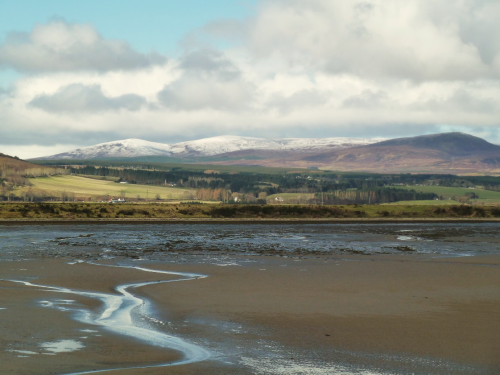Scotland’s National Outcome’s include protecting and enhancing our natural environment, and reducing our global environmental impact, helping to deliver the United Nation’s Sustainable Development Goals including Goal 13 – Climate Action and Goal 15 – Life on Land. To help deliver these we need to understand Scotland’s biodiversity.
Current biodiversity research in Scotland addresses a range of issues including studies of individual species or habitats (for example grouse moors), as well as of large and inter-connected habitats and ecosystems (for example studies of resilience in key habitats). Yet sometimes this research appears to be a fragmented collection of studies which don’t address clear themes.
To address this challenge a group of participants from 13 key partner organisations interested in Scotland’s biodiversity research recently came together in a SEFARI Gateway Responsive Opportunity funded workshop. The workshop was coordinated and organised by a team of SEFARI researchers that are heavily involved in Natural Assets Theme of the current Strategic Research Programme.
The workshop aimed to identify major themes around which future Scottish biodiversity research activities could be developed. Representatives of the SEFARI research institutes, biodiversity and ecological policy bodies, environmental non-governmental organisations, and policymakers debated different perspectives on the key biodiversity research priorities for Scotland, emphasising research needs and gaps, and identifying possible research themes for the future.
Participants highlighted the sense of emergency surrounding biodiversity, just as with climate change, with biodiversity loss (as reviewed in the recent State of Nature Scotland report) increasingly requiring urgent action.
Biodiversity research in the future will need to change from monitoring and identifying the effects of climate change and other key environmental drivers on biodiversity, to responding and providing advice about adaptation and resilience.
Calls were made for more transformative research and greater coordination of research effort across research networks and between research funding and policy.
Key thematic priorities identified by participants included:
- assessing and understanding biodiversity at the landscape scale;
- considering the impact of data innovations such artificial intelligence, remote sensors, eDNA (environmental DNA) and data analytics;
- use of nature-based solutions in a way that works for the climate and for nature;
- increased social science to better understand people’s connections to and interactions with nature;
- genetic conservation;
- increasing long-term monitoring;
- and greater understanding of the impact of management practices and adaptive management of land and aquatic environments.
A full report of the workshop is available here. The results of the workshop will be circulated to key stakeholders and we hope it will be used to guide discussions about future biodiversity research strategy in Scotland.
Dr Alice Hague, Prof Rob Brooker and Dr Jenni Stockan, The James Hutton Institute.
